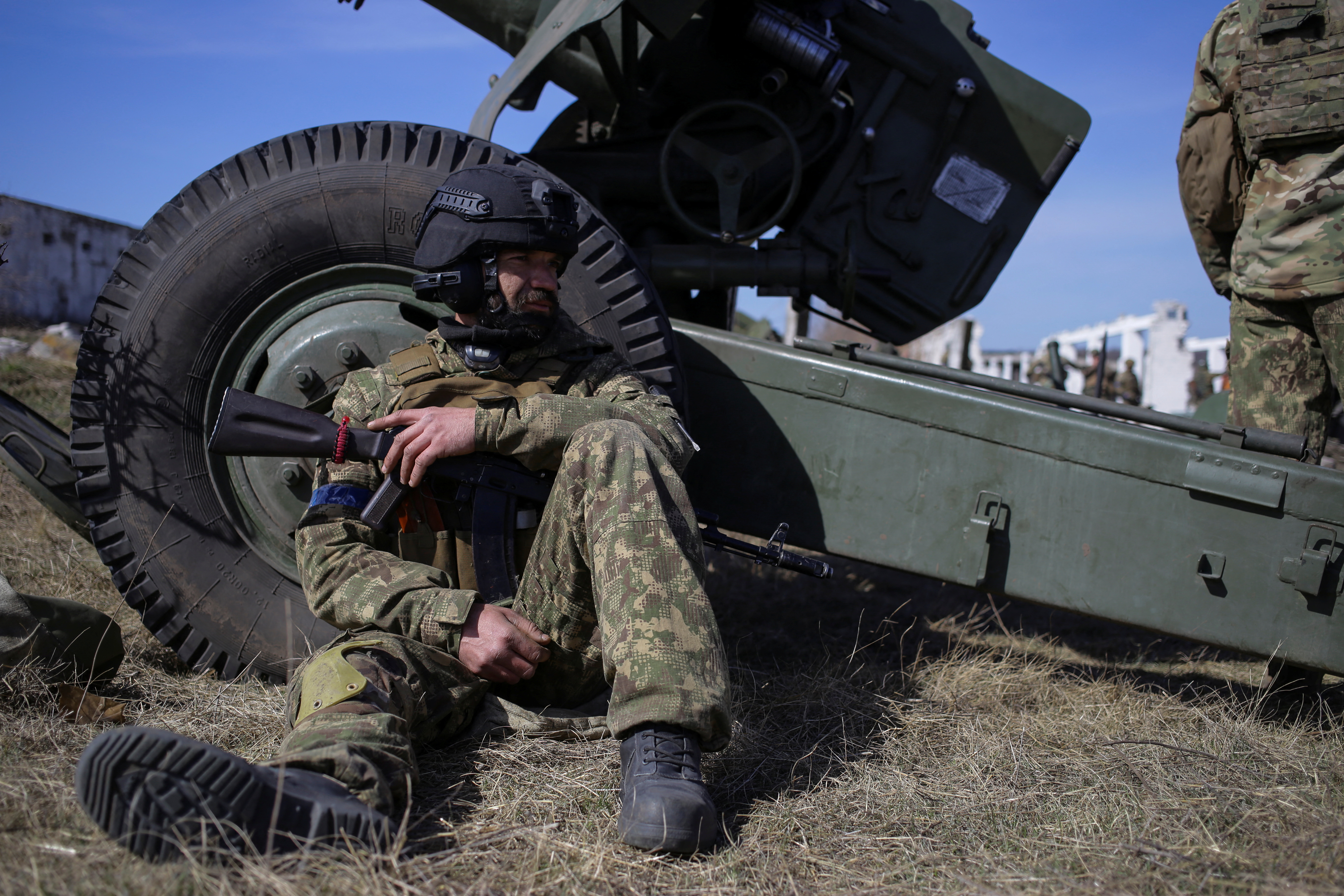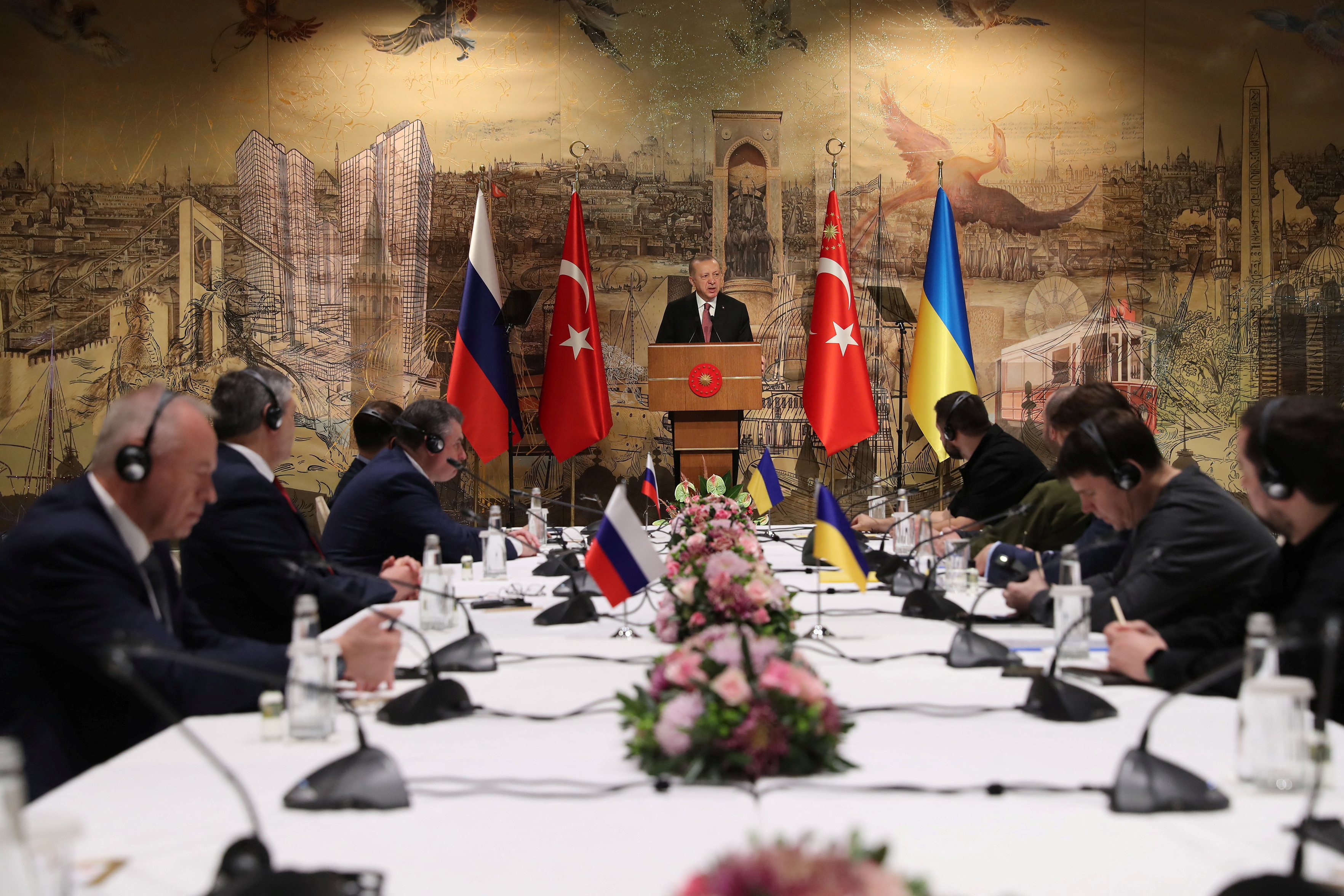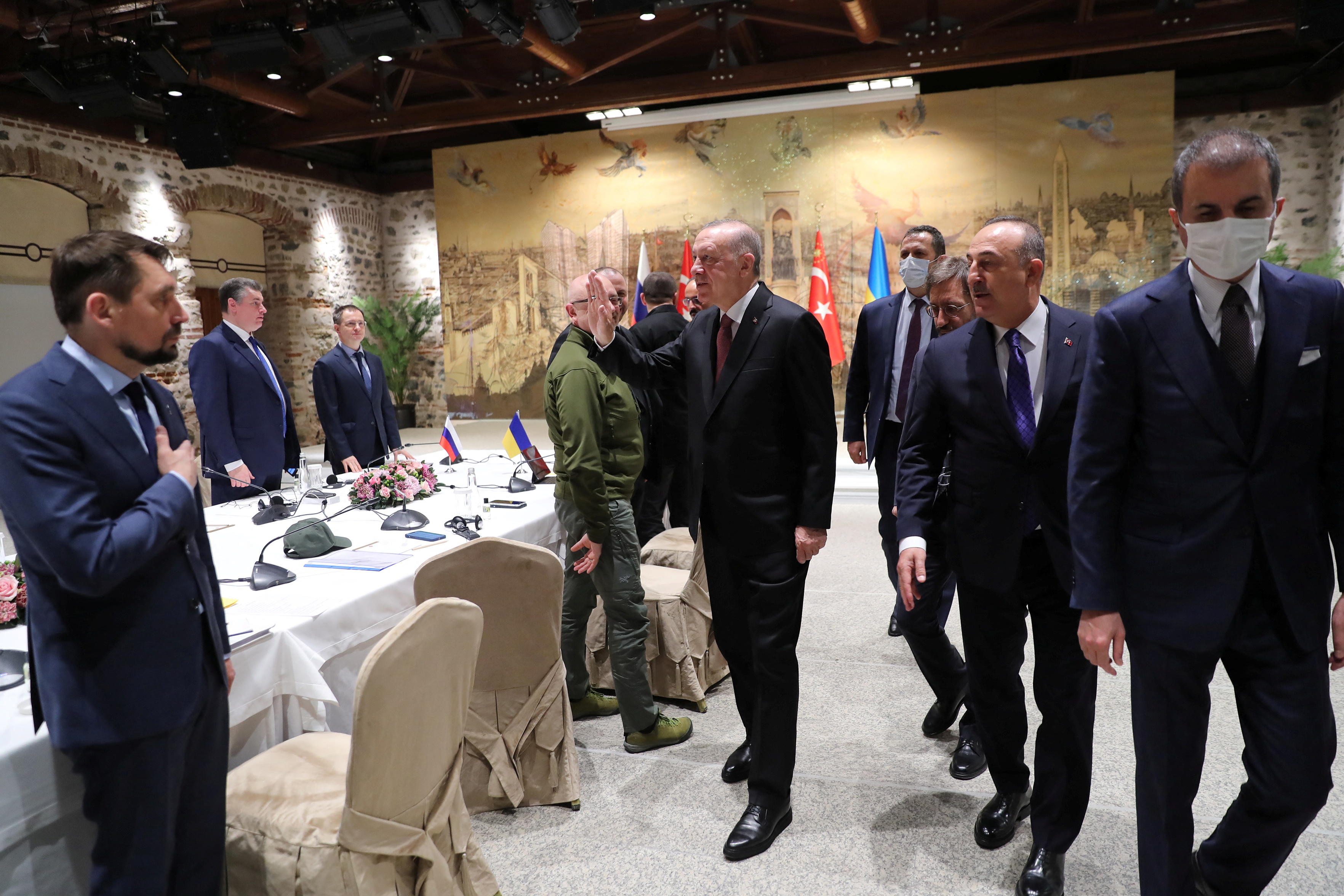Reuters, March 29, 2002
Turkish President Tayyip Erdogan welcomed delegations from both sides at an Istanbul palace, saying “stopping this tragedy” was up to them.
Ukraine holds little hope of an immediate breakthrough. But the resumption of face-to-face talks is an important first step towards a ceasefire in a Russian invasion.
More than a month into the war, the biggest attack on a European nation since World War Two, more than 3.8 million people have fled abroad, thousands have been killed and injured, and Russia’s economy has been pummelled by sanctions.
In the southern port city of Mariupol, besieged by Russian forces since the war’s early days, nearly 5,000 people have been killed, including about 210 children, according to figures from the mayor which cannot be verified.
Elsewhere, however, Ukrainian forces have made advances in recent days, recapturing territory from Russian troops on the outskirts of Kyiv, in the northeast, and in the south, as Moscow’s invasion has stalled in the face of strong resistance.
An area recaptured by Ukrainian forces northeast of the capital on a road towards the village of Rusaniv was littered with burnt-out tanks and bits of Russian uniforms. Surrounding houses were destroyed. A Ukrainian in uniform was digging a pit in the soil to bury the charred remains of a Russian soldier.
Ukrainian Foreign Minister Dmytro Kuleba said of the talks in Turkey: “We are not trading people, land or sovereignty.”
“The minimum programme will be humanitarian questions, and the maximum programme is reaching an agreement on a ceasefire,” he said on national television.
Russia’s Defence Minister Sergei Shoigu said Russia had largely completed the first phase of its military assault, had degraded Ukraine’s military capabilities and would now focus on areas claimed by separatists in the southeast.
Moscow made a similar declaration late last week, interpreted in the West as a sign it was giving up on initial aims of toppling the government in Kyiv after failing to seize the capital.
Russia calls its mission a “special operation” to disarm and “denazify” Ukraine. The West says it launched an unprovoked invasion.



Kremlin spokesperson Dmitry Peskov said talks so far had not yielded any substantial progress but it was important they continued in person.
Russian billionaire Roman Abramovich was in the Dolmabahce palace in Istanbul where the talks took place, though it was not immediately clear in what role. He has tried to act as a go-between, including during a trip early in the conflict when he and several Ukrainian negotiators are said to have fallen ill.
SIRENS
Air raid sirens sounded before dawn across Ukraine, the latest sign of Russia’s increasing reliance on long-range strikes. Russia’s defence ministry said on Tuesday it had struck a large fuel depot in the western Rivne region overnight, far from any fighting.
“The enemy continues to vilely carry out missile and bomb strikes in an attempt to completely destroy the infrastructure and residential areas of Ukrainian cities,” the Ukraine military’s general staff said. “(They) focus on fuel storage facilities in order to complicate logistics and create the conditions for a humanitarian crisis.”
In an address on Monday night, Ukrainian President Volodymyr Zelenskiy repeated calls for the West to go further in punishing Moscow for its invasion.
“We, people who are alive, have to wait. Doesn’t everything the Russia military has done to date warrant an oil embargo?”
While Western countries have imposed hard-hitting sanctions upon Moscow, Europe is heavily reliant on energy imports from Russia and has been so far reluctant to act to block them.
In besieged Ukrainian cities where conditions are desperate, the threat of Russian attacks has blocked exit routes for civilians. Mariupol’s mayor said about 160,000 people were still trapped in the city, which once held 400,000.
“There is no food for the children, especially the infants. They delivered babies in basements because women had nowhere to go to give birth, all the maternity hospitals were destroyed,” a grocery worker from Mariupol who gave her name as Nataliia told Reuters after reaching nearby Zaporizhzhia.
Since the last in-person talks were held on March 10, when Russian foreign minister Sergei Lavrov said a ceasefire was not even on the agenda, momentum on the battlefield has shifted in Ukraine’s favour.
“We have destroyed the myth of the invincible Russian army. We are resisting against the aggression of one of the strongest armies in the world and have succeeded in making them change their goals,” Kyiv Mayor Vitali Klitschko said.
The sides have held talks via video link in recent weeks and both have publicly discussed a formula under which Ukraine might accept some kind of neutral status.
But neither side has budged over Russia’s territorial demands, including Crimea, which Moscow seized and annexed in 2014, and eastern territories known as the Donbas, which Moscow demands Kyiv cede to pro-Russian separatists.
